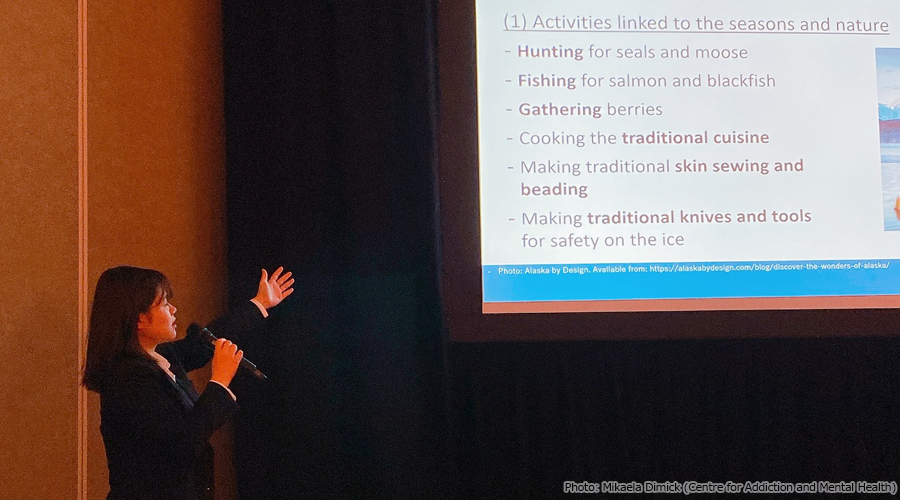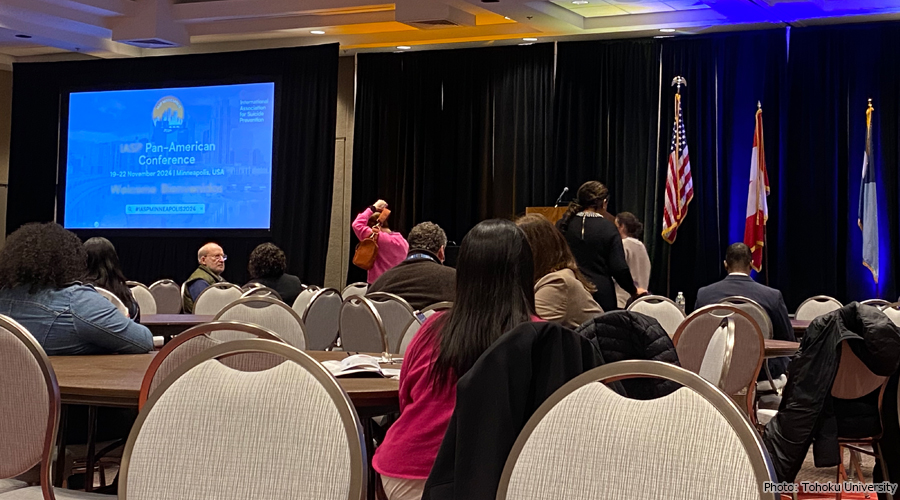Participation and research presentation in International Association for Suicide Prevention (IASP) Pan-American Conference
Overseas Fellowship Program Participant:FY2024 Short-Term Program
Saki Yoshida (Tohoku University)
I attended the International Association for Suicide Prevention (IASP) Pan-American Conference. It was held in Minneapolis, Minnesota, USA, for four days from November 19 to 22, 2024. IASP is an international organization working to prevent suicide. It holds regional and global conferences to share evidence-based practices, knowledge, and experience.
At this conference, I gave an oral presentation on culturally based suicide prevention interventions for young Alaska Natives.

Vulnerable people such as indigenous people are at high risk of suicide. In fact, the suicide rate among Alaska Natives has been higher than that of non-indigenous people. The same trend is also seen among young people. As a countermeasure, programs that take advantage of the traditional culture, which is the strength of indigenous people, are being actively promoted. I presented the results of my literature review for my graduation research.
Through the oral presentations, discussions and Q&A sessions, I realized areas for improvement in my own research. I also learned about the current situation in Canada, where similar issues are being faced, and recognized the importance of addressing these issues and the significance of my research.

During the conference, I mainly attended sessions on suicide prevention for young people and vulnerable people. I learned about a wide range of topics, including geographical handicaps in some regions, such as the Arctic, and the current state of planning and management of suicide prevention program development.
In addition, there were many practitioners in attendance, including researchers and medical and psychological professionals working in the field of mental health. I have no experience in the fields of clinical or community mental health, so it was very educational for me to listen to the discussion about practical issues in the Q&A session.
In addition, I was able to communicate with various researchers from all over the United States and Canada, and I was able to gain a valuable networking opportunity for future research.
Although I was nervous and anxious about going to the United States by myself for the first time, I was able to complete the program successfully and gain a very valuable experience. We would like to sincerely thank everyone involved in ArCS II and Arctic researchers.
